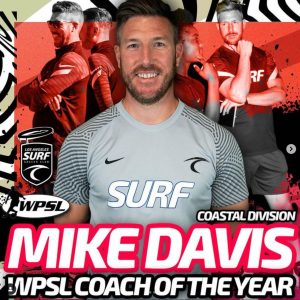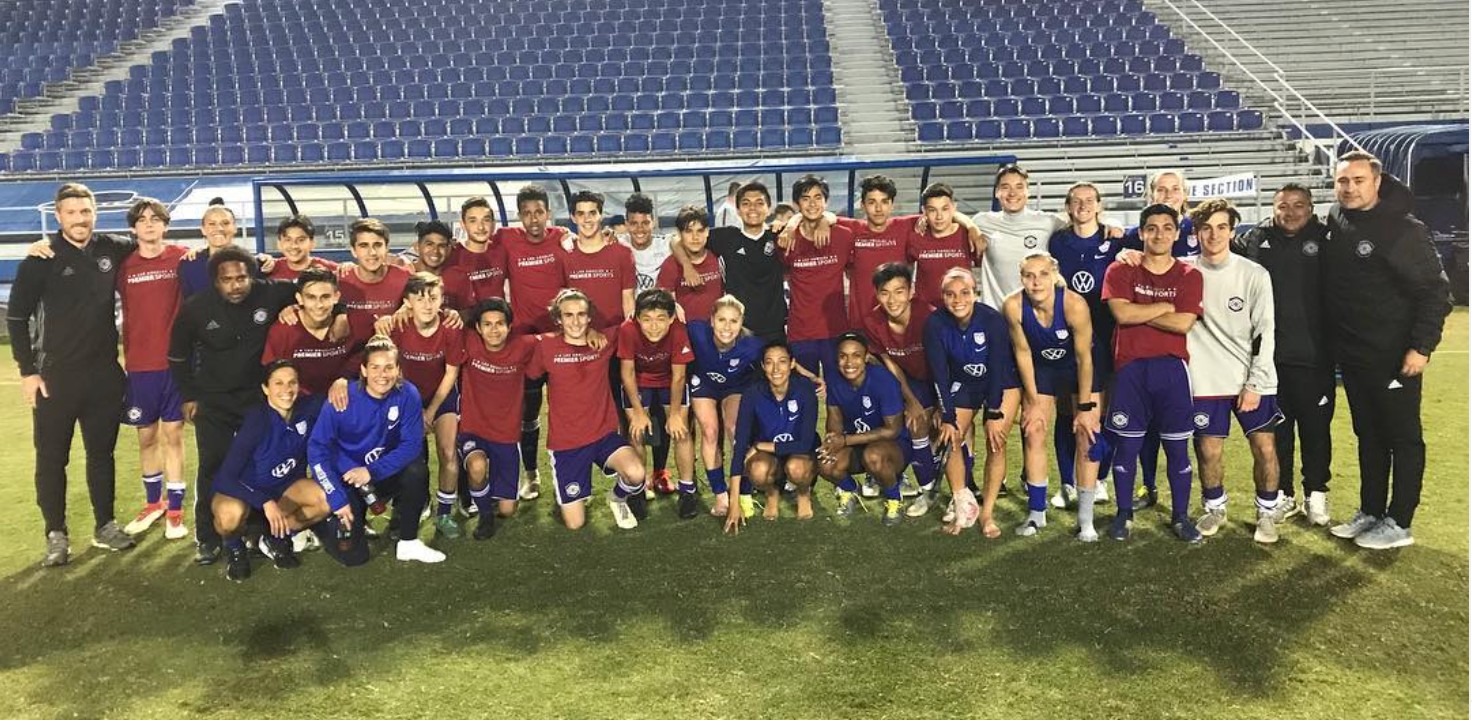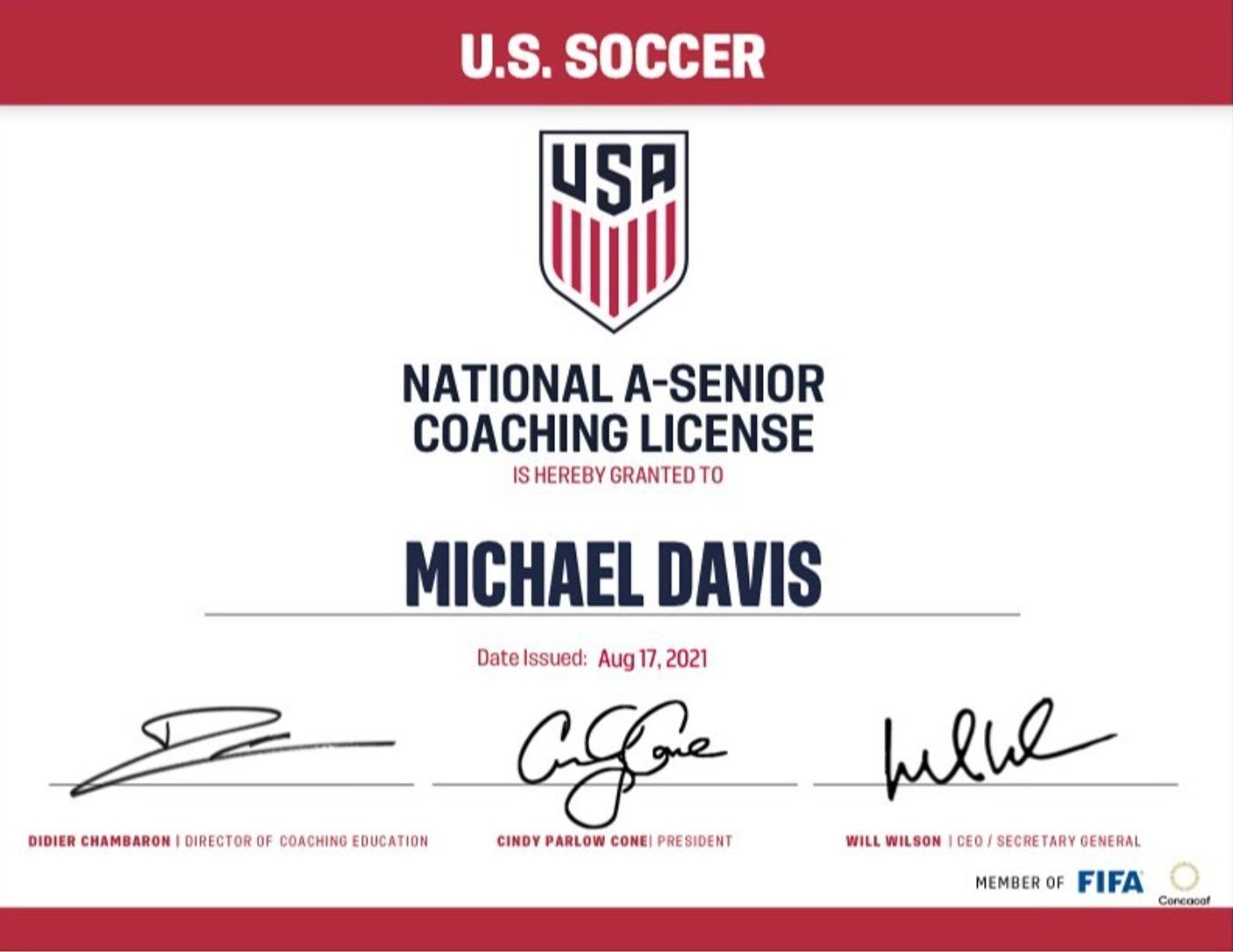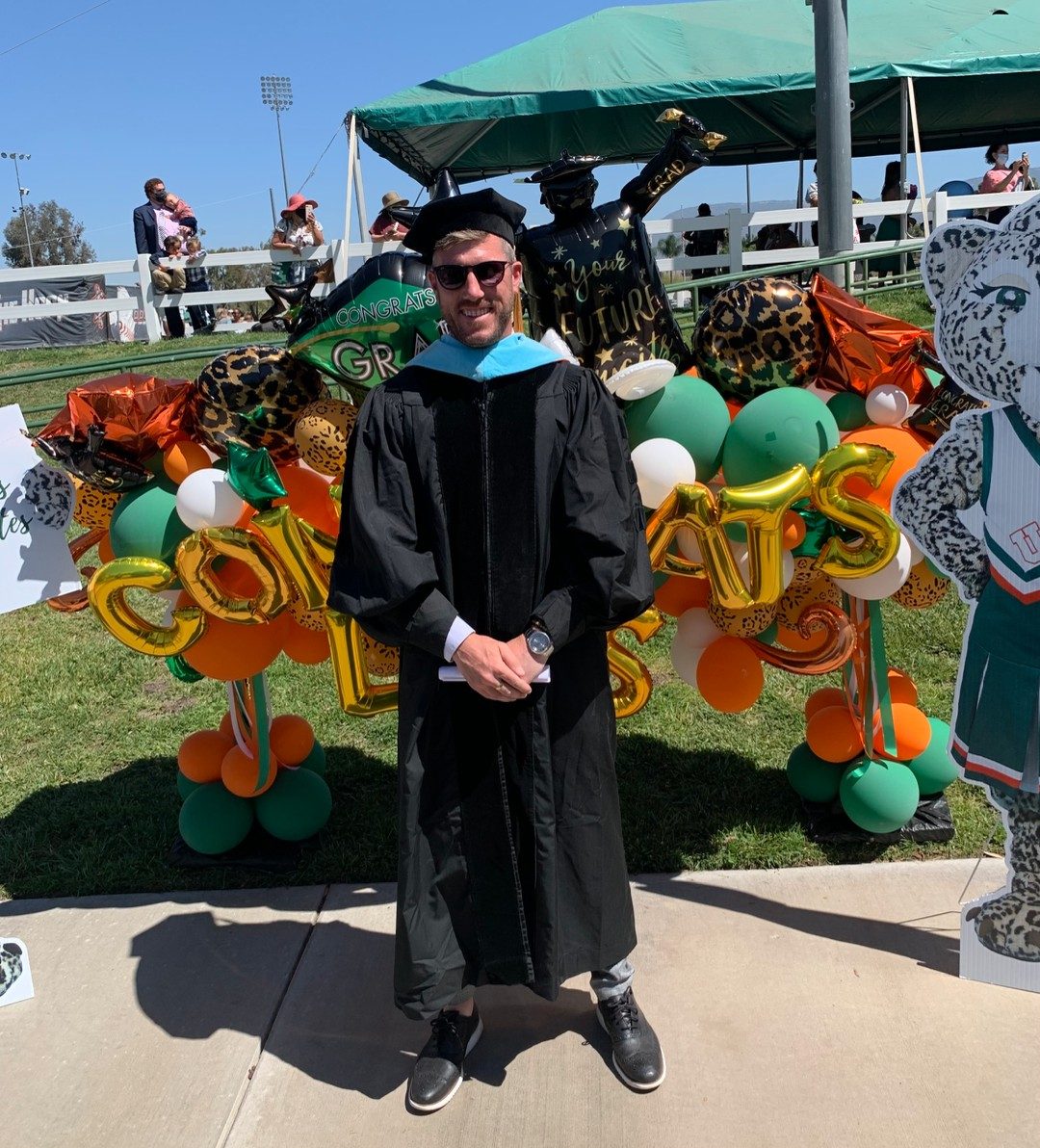 Today we’d like to introduce you to Mike Davis.
Today we’d like to introduce you to Mike Davis.
Hi Mike, we’d love for you to start by introducing yourself.
I was born in Manchester, England, as an only child. I had a relatively happy childhood and discovered sport at an early age due to my dad. He was a professional cricketer (the English version of baseball!) when he was younger, and I was learning to play as soon as I could stand up. When I was at elementary school, other kids were interested in soccer, with it being the national sport of England. It quickly became my favorite sport, and I even got my parents excited by my involvement in it! Joining a soccer club and beginning to support Manchester United ignited my love affair with the sport, which paved the way for which my life would form. When I was 12 years old, my dad lost his battle with alcoholism and passed away, leaving my mum and I to pick up the pieces. Fortunately, my mum was incredible and protected me from a lot of pain she encountered within her marriage, and my protection continued during the aftermath of my dad’s death. She would take me to all of my training sessions and games, being present on the sidelines, continuously supporting and cheering me on.
At the age of 17, whilst playing and beginning to coach soccer at the end of high school, I found out from my coaches that there were scholarship opportunities in the US to play soccer whilst studying for a degree. This is not something which is usually possible in England, and I was very excited to see what opportunities were available for me. I signed up with a scholarship agency near to where I lived, but unfortunately, I was unable to find a university which was a fit due to the tuition cost and other factors. I went to university in Manchester, studying Coaching and Sports Development, and during that year, I signed up with a different scholarship agency that found me a couple of universities that were a good financial fit. I chose to leave home at age 19 and fly to Atlanta, GA, to embark on my American journey. I played 4 years at Berry College in Rome, GA, and graduated with a degree in Business Management. During the summer months between school years, I worked at soccer camps, adding to my coaching experience already obtained in England. This was a hugely important part of my journey because it enabled me to feel confident enough to take the US Soccer “C” License before my senior year of college. Whilst on this course, I was offered a Graduate Assistant position to coach women’s soccer at St. Ambrose University in Davenport, IA, by a head coach on the same course. I moved there in August 2011 after my graduation from Berry, and this began my coaching chapter of my soccer life.
I graduated with a Master of Business Administration in 2013 and, upon taking more coaching courses, was offered a position at the NCAA Division 1 level in Green Bay, WI. The next 3 years took me to the University of Evansville, where I got a second Master’s in Public Service Administration and Gonzaga University. Unfortunately, due to my head coach at Gonzaga being let go, I was left with a tricky fork in the road moment. Do I continue coaching and apply for positions at colleges in the US, or do I go back to England and use my coaching experience in my homeland? Well, after I applied and was offered a club coaching role in Los Angeles, I applied for a doctorate program in Organizational Leadership and got in! This choice was based on the content of the course and how I could apply it to my coaching as well as my own leadership background. The next three years were a resounding success while I balanced the club work, the doctorate, completing the US Soccer “A” License course, and also coaching at a college. Upon completing my doctorate after a grueling dissertation journey, I felt a wave of relief and accomplishment. My dissertation was entitled, “The role of mentorship increasing the number of female coaches in NCAA Division I women’s soccer programs”, and through interviewing six female coaches who had a differing amount of experience coaching at the Division I level, I was provided with a fascinating insight into their lived experiences. I chose this topic, having coached females in college and club soccer for eight years at that point. I had always felt it was my duty to use my position of leadership to empower young females to follow their life goals and help facilitate the development of their own authentic leadership style.
Since completing my doctorate, I have remained in coaching, but have also gradually started opening the door for my very own leadership company, “Potentiate Leadership”. This was spurred on by my passion to use my academic and coaching leadership experiences to enhance any industry and organization in ways such as teamwork and team building, conflict management and resolution, individual empowerment, and teaching the importance of transformative and servant leadership, to name but a few.
We all face challenges, but looking back, would you describe it as a relatively smooth road?
Even though it feels like a lifetime ago now, my father’s passing away certainly had some negative effects on my childhood. I firmly believe not having a male role model, who I saw often, made me slightly vulnerable to teasing from friends, which I took to heart too easily. This may have also been due to the fact I was an only child. It was certainly a challenge moving to the US at age 19 without knowing anyone nor having been to the country before. I had one moment during the first few weeks when I sat around my new team and thought, “What the hell am I doing here?!” Thankfully, that did not last long, and I was fortunate to have great teammates who made me feel welcome. I turned this into a wonderful, refreshing experience where I could reinvigorate myself to become a more confident person who can make friends and meet people more easily.
Having to move around the US five times from 2011 to 2017 was stressful. I did not know how long I would be situated in one place, and I did not know where my next move would be. Fortunately, I worked for some great people and met some lifelong friends.
When I was coaching women’s college soccer at Gonzaga, I had goals to keep moving up the “ladder” in collegiate soccer in a very specific manner. When I moved to Los Angeles, I took a different direction, with club soccer being my full-time work whilst doing my doctorate, and that took some time to feel comfortable with the change in my career trajectory.
As you know, we’re big fans of Potentiate Leadership. For our readers who might not be as familiar what can you tell them about the brand?
It is important to know that in this day and age, when anyone on social media can pretend to be a professional mental or physical health expert, a professionally licensed or certified sports coach, or a leadership coach who can turn your business around, there are indeed legitimately qualified professionals who can help people. My soccer coaching background emphasizes leading athletes of all ages with a focus on young adults, as well as my professional colleagues. When this is combined with my academic background in business and organizational leadership, a skillset is created which can enhance and/or revitalize the ways organizations operate. I love being connected with people. The strategies I teach for teams within organizations to improve their interpersonal behavior, positive team building, conflict resolution, team culture, and many more factors, is something I am very passionate about. I adore the energy people bring once they become bought into an idea. This can come through in-person workshops and even online learning through Zoom or Google Meet, for example.
Are there any important lessons you’ve learned that you can share with us?
If you really want something, you have to work for it. Love, friendships, professional goals, characters skills and personal morals, and anything else you may want can only be achieved if you work hard for them. Personal relationships can make or break you. From my experience, when I am selfless, kind, and considerate, people trust you. If you break this trust, it can be the most harmful feeling you may experience. Brene Brown’s BRAVING acronym explains how Boundaries, Reliability, Accountability, The Vault (keeping information someone has shared to yourself), Integrity, Non-Judgment, and Generosity can be the guide which makes a person a trusted and inspiring leader.
Another lesson I have learnt is the skill at pivoting. Whether it is career direction, a romantic or platonic relationship which has broken down, or any other adversity, if you build your resilience to pivot, there will always be light at the end of the tunnel.
Contact Info:
- Website: www.potentiateleadership.com
- Instagram: potentiate_leadership
- Facebook: Potentiate Leadership
- Linkedin: linkedin.com/in/mike-davis-leadership
- Twitter: PotentiateL



Image Credits
LA Surf











